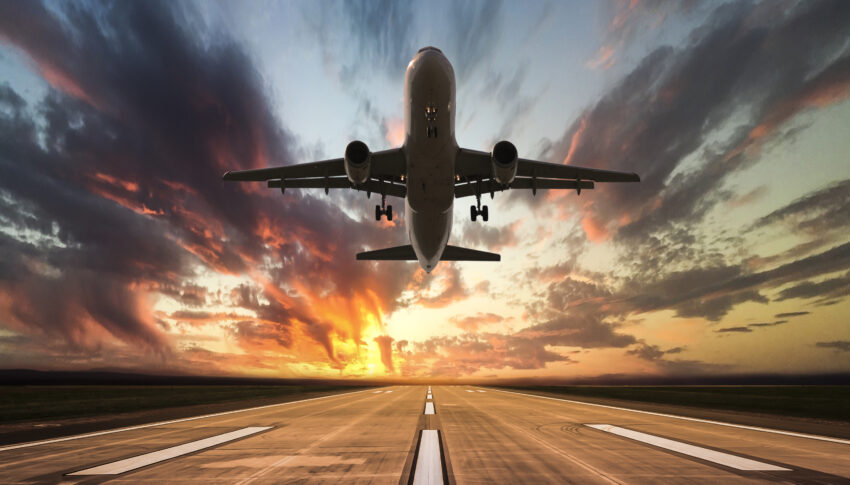It’s tricky to make money with an airline at the best of times, so you might think a global pandemic that has devastated travel would deter anyone from setting up a new airline.
But with CAPA-Centre for Aviation data revealing that 42 airlines started operations in the 18 months to June 2021, with a further 36 airlines to follow over the next one to two years, we delve into three northern European carriers benefitting from availability of aircraft, crews and even new technology to ensure their cost base is as lean as possible.
One of those testing the water is Icelandic carrier PLAY, which started operations last month and has so far received three A321neo aircraft. Chief operating officer Arnar Már Magnússon tells us that the airline benefits from having an experienced team, many of whom came from collapsed carrier Wow Air. “The experience that the team has having seen what works and what doesn‘t is valuable and will benefit PLAY now and in the future,” he predicts.
With rapid expansion having been the downfall of several carriers in the past, PLAY seems determined to take things at a more cautious pace, and is focussing on routes that look more resilient to shocks.
“Our business and predictions are all obviously based on the current market situation and we are taking things slowly and carefully,” Magnússon says. “We are focusing on getting established and we are flying routes that are known to be good and popular destinations.”
PLAY is currently flying only European destinations but has applied for permission to operate routes to the United States. “We are in a position to be flexible and grow with the demand and as we see the demand grow you will see our frequency go up and more destinations added,” Magnússon says.
Changing demand and travel restrictions have affected the start date plans for Norse Atlantic Airways, however. The new carrier, which counts former Norwegian executives Bjorn Kjos and Bjorn Tore Larsen among its backers, plans to focus on low-cost, long-haul routes between Europe and North America. It has signed long-term leases for 15 Boeing 787 Dreamliner aircraft and hopes to have them all flying next summer.
But as of August 2021, Europeans still aren’t allowed into the United States, even though Europe has opened to American visitors.
Norse Atlantic therefore announced on 10 August that it would be starting operations in the first half of 2022. It had earlier predicted it could be operational towards the end of this year, Coronavirus depending.
“Travel restrictions have not lifted as quickly for long haul travel as for short haul,” according to chief executive Larsen in the 10 August briefing. “Once these restrictions have been lifted, we are ready to go. We don’t want to start too early, there’s no point flying around with empty aircraft,” he adds, saying the carrier’s cash position meant it could wait a little longer.
Larsen is also adamant the Norse Atlantic team will not go the way of Norwegian, which collapsed after rapid expansion and ballooning debts. Norwegian has now restructured and aims to focus solely on short-haul European routes, dropping transatlantic destinations. “Our model is very different from any other model, it hasn’t been proven or disproven yet,” Larsen notes. “We are a low cost long haul airline only. We have a lean operation, we know we can make decent profits based on the cost base we have.”
One benefit of starting during a pandemic is cheap rates on leasing new aircraft, with many carriers having either gone bust or returned planes to lessors. PLAY says it secured its three A321neos at “very favorable” leasing terms.
“Finding planes is always a big project and a lot to negotiate,” Magnússon explains. “The very successful funding and start of operations has created unique opportunities for Play to secure the future fleet that fits our network strategy.”
Even big carriers have seized the opportunity to scoop up aircraft at good leasing rates, with Lufthansa moving to lease more of its fleet than previously. However, the group’s chief executive Carsten Spohr predicts the low point for leasing rates has already passed, telling journalists on 5 August that he believed Lufthansa had captured the “sweet spot” with an order in May.
Setting up a new airline also provides an opportunity to start from scratch when it comes to technology — reducing costs, adding capabilities and simplifying operations. Flyr is another Norwegian start-up and boasts that it is the world’s first pure NDC/OneOrder-based airline. New Distribution Capability allows airlines to market their products using rich content, while One Order follows on from that, aiming to replace the multitude of reservation orders with a single reference number.
“Building from scratch, Flyr has had the opportunity to base its technology platform on the most recent and state-of the art solutions available,” the airline notes in its first quarterly report. “All technological infrastructure is based on standardized off the shelf software solutions, contributing to operational efficiency and low costs.”
It remains to be seen which of 2021’s new airlines will prove the most successful. The pandemic is not yet over and fears of new variants of COVID-19 may yet upset more plans. Enticing passengers to a new airline, and keeping a lid on costs amid Europe’s highly competitive air travel market, will be key challenges for these new entrants. But if the challenges are substantial, so are the opportunities, with gaps in the market having appeared as the pandemic knocks out weaker carriers. Let’s see how these three make the most of their chances.
Author: Victoria Bryan
Published: 23rd September 2021




